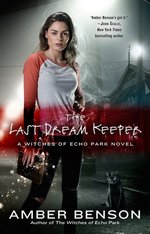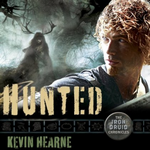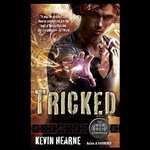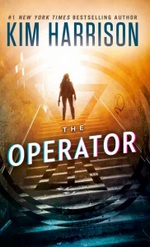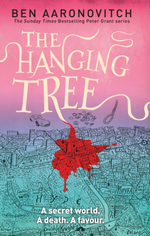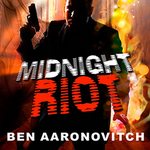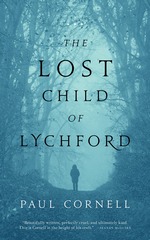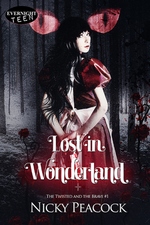 Lost in Wonderland
Lost in Wonderland
by Nicky Peacock
Series: The Twisted and The Brave, #1Kindle Edition, 124 pg.
Evernight Teen, 2016
Read: November 30, 2016

This story focuses on Kayla — a young woman who looks years younger than she is (young enough to be appealing to the Humbert Humberts of the world as well as old enough to come across as a young co-ed), which is helpful in her vocation. She’s basically bait for serial predators (who the authorities can’t/haven’t done anything to) as part of her work with Wonderland. Wonderland is a group run by former federal agents bankrolled by a largely mysterious billionaire. Each “Wonderlander” goes by a code name derived from the Lewis Carroll book, and can quote sections relevant to their moniker (and recognize others quoting their parts). She and her colleagues — Rabbit and Chesire (Kayla’s Mouse) — lure the killers/molesters somewhere, take them out and then have someone come in clean up after them.
Her brother, Shilo, is locked up in a Mental Health facility for a handful of reasons, but the largest is his insistence that a man who dresses in orange is his constant companion who tells him what he should do. No one else can see or hear Mr. Custard, naturally, so Shilo is on the receiving end of all sorts of treatments. Neither the drugs, the talk therapy, or anything else seems to be working — Mr. Custard is still there, as much as Shilo might try to pretend he’s not.
Both siblings are reacting to the disappearance/abandonment of their mother while they were young and the suicide of their father not long after in very different ways, but both of their atypical lives can be traced to these incidents. Now it seems that someone is killing women near their childhood home, and there’s something drawing both of them back their to confront the killer.
The story is an interesting mix of Supernatural and Thriller stories, and once I saw that’s where she was going, I wasn’t sure that Peacock was going to be that successful with it — very few are. I’m not talking straight-up Urban Fantasy, I’m talking about a Suspense/Thriller that mixes in some sort of magic/monster where bullets and explosions should be. The last time I read a mystery where the author tried this, it ruined the book — it’s tricky. The heightened reality that she was using already helps, but it doesn’t guarantee success, Peacock tried a tricky thing and made it work, that’s no small feat.
Still, there’s only a little supernatural to this — there’s a human villain, human protagonists, human costs, human relationships at the core of this novel. Peacock’s up to the challenge of writing them, no doubt about it.
I liked the characters — especially Kayla. The story moved along well, the action was convincing — and the predators were just horrible enough that you didn’t really care that much that vigilante action took care of them rather than the law. Sure, the book could really have used one more thorough edit. More importantly, the facility that Shilo lives in draws more from One Flew Over the Cuckoo’s Nest or Gotham‘s depiction of Arkham than reality — and as annoying as that is, really, if you’re looking for realism, you’ve dropped this book before it gets to that.
Can she follow this up with an equally successful sequel? That might be trickier, but I’m looking forward to seeing her try.
Disclaimer: I received a copy of this novel from the author in exchange for my honest opinions.
—–



